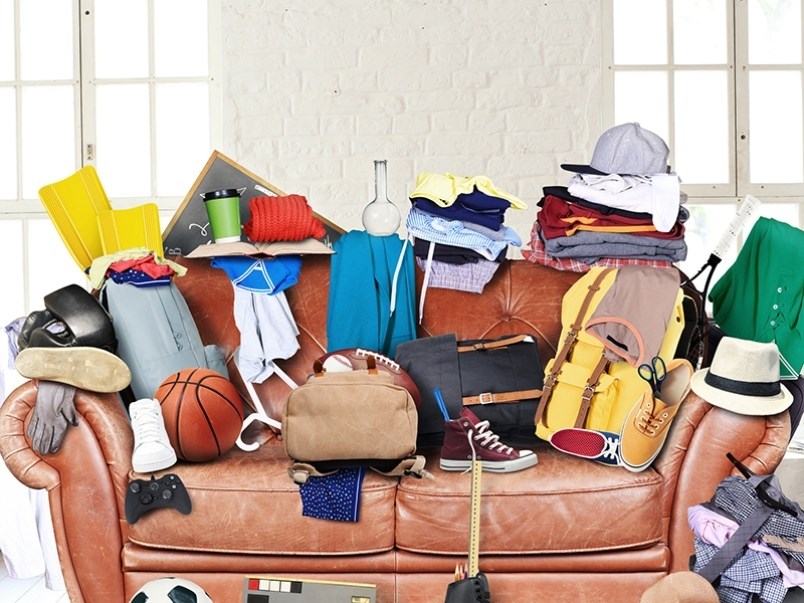Are you tired of being controlled by your clutter? Are you craving a functional and clutter-free home, but can’t decide what to keep or what to discard? Do you have an emotional attachment to your stuff?
Excessive clutter in your home can trap you, shame you, depress you and keep you stuck. But with a little bit of work and professional guidance, you can achieve the life you desire.
Here are some simple steps to help you decide what items will stay and what will go:
Become a Sherlock Holmes
The only way to find out what you have and what lives in your home rent-free is to do some investigation. Arm yourself with comfortable shoes and clothes, a water bottle and a clipboard and go through every room in your house, including the attic, garage and shed. Write down everything you don’t need or use.
The best way to recoup the money you spent is to have a garage sale or place an ad in the Peak’s classified section.
Use the 80/20 rule
Most people only use 20 per cent of what they own regularly. The other 80 per cent are things we used in the past, or things we feel we might use in the future. So, approximately 80 per cent of your possessions are taking up valuable space.
If you feel overwhelmed with clutter, then begin to identify which group all your items belong in. If they fall into the 20 per cent you use regularly, then the only thing left to do is to find accessible storage for them.
If they fall into the remaining 80 per cent, they are good candidates for donation or a garage sale.
Box them up
If the idea of getting rid of something you never use or need is difficult for you, try this:
Get a couple of large plastic containers with lids and store anything you don’t use for six months. Make sure you write what’s inside and the date. Then, put the box in your garage, or other out-of-the-way places.
When six months is up, and you still didn’t need anything in the box, let it go. Donate it goes to people in need or a charity you like.
Don’t pile, file
Don’t allow your paper to build until it’s in an unmanageable state. Handle your incoming paper daily or set a schedule to file weekly.
Avoid temporary storage, meaning leaving papers and stuffing them wherever they land. Having one consistent place works in the long run. Remember, it only takes seconds to contain your papers, put your keys away or hang your jacket.
Remove yourself from distribution lists as your name is sold to hundreds of companies asking you to buy their products. Go through your filing cabinet every three months. Get rid of outdated papers and unnecessary duplicates.
Forward these tips to your friends and family. You might just help somebody who is struggling with a cluttered home.
Ranka Burzan owns a professional organizing company based in Powell River and has written several books on reducing clutter and becoming more organized. For information, go to solutionsorganizing.com.



